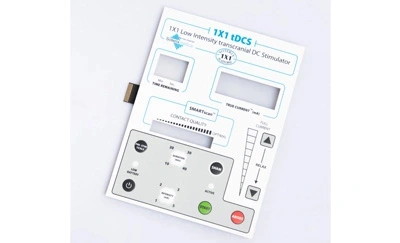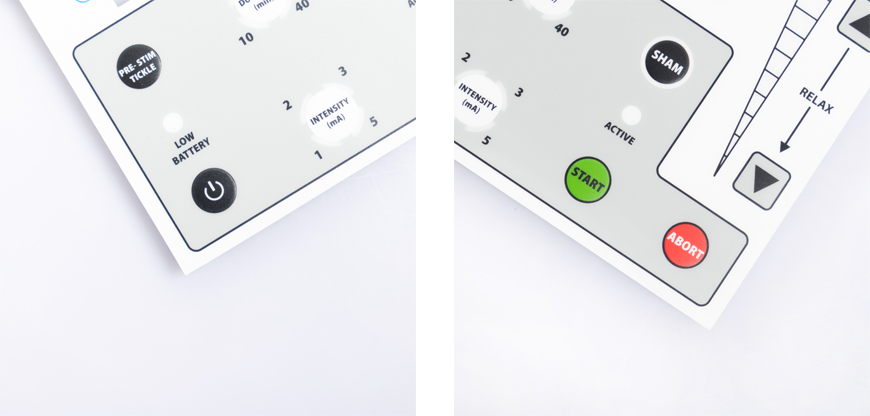
In the world of user interfaces, innovation never ceases. When it comes to designing user-friendly interfaces for various electronic devices, the LED membrane switch has emerged as a game-changer. Originating from China, these switches have taken the market by storm with their versatility, durability, and aesthetic appeal. In this article, we'll delve into the world of LED membrane switches, exploring their functionality, benefits, manufacturing process, and more.

At its core, an LED membrane switch is a low-profile, easy-to-operate interface that combines the simplicity of a membrane switch with the visual appeal of LED backlighting. These switches are often used in electronic devices, control panels, and appliances to provide users with a tactile interface that lights up when activated.
LED membrane switches use a layer of flexible material, typically polyester or polycarbonate, with printed conductive traces. When pressure is applied to a specific area on the switch, it creates a connection between the conductive traces, registering the input. The integrated LED backlighting illuminates the switch, making it not only functional but also visually appealing.
Durability
LED membrane switches are known for their durability. The materials used are resistant to moisture, chemicals, and UV exposure, ensuring a long lifespan even in harsh environments.
Customizability
These switches offer endless customization possibilities. Manufacturers can print intricate graphics, icons, and text on the switch's surface, allowing for brand-specific designs.
Cost-Effective
Compared to traditional mechanical switches, LED membrane switches are cost-effective to manufacture, making them an ideal choice for high-volume production.
User-Friendly
The tactile feedback and backlighting make LED membrane switches user-friendly. They are easy to operate and enhance the overall user experience.
Material Selection
The process begins with choosing the right materials, typically polyester or polycarbonate, for the membrane layer. These materials are selected for their durability and flexibility.
Printing and Circuitry
Conductive traces are printed onto the membrane using specialized techniques. This step is crucial as it defines the switch's functionality.
Backlight Integration
LEDs are integrated into the switch for backlighting. The placement and design of these LEDs are critical for even illumination.
Adhesive Layer
An adhesive layer is applied to the back of the membrane, allowing it to be securely attached to the device or control panel.
LED membrane switches find applications in various industries, including:
Medical Devices
In the medical field, these switches are used in equipment such as patient monitors and diagnostic devices due to their hygienic and user-friendly nature.
Industrial Control Panels
Industrial machinery and control panels benefit from LED membrane switches for their durability and customization options.
Consumer Electronics
From kitchen appliances to remote controls, LED membrane switches enhance the functionality and aesthetics of consumer electronics.
In conclusion, LED membrane switches from China have revolutionized user interfaces in electronic devices. Their durability, customizability, cost-effectiveness, and user-friendliness make them a preferred choice for various industries. As technology continues to advance, LED membrane switches are likely to play an even more significant role in shaping our interaction with electronic devices.
Yes, LED membrane switches are designed to withstand outdoor conditions, including exposure to moisture and UV rays.
Absolutely! LED membrane switches can be customized to fit specific shapes and sizes, making them adaptable to various devices.
LED membrane switches have a long lifespan, often exceeding millions of cycles, making them highly durable.
Yes, these switches are easy to clean and maintain, making them ideal for applications where hygiene is essential.
Yes, LED membrane switches can be retrofitted into existing devices, offering a cost-effective upgrade option.